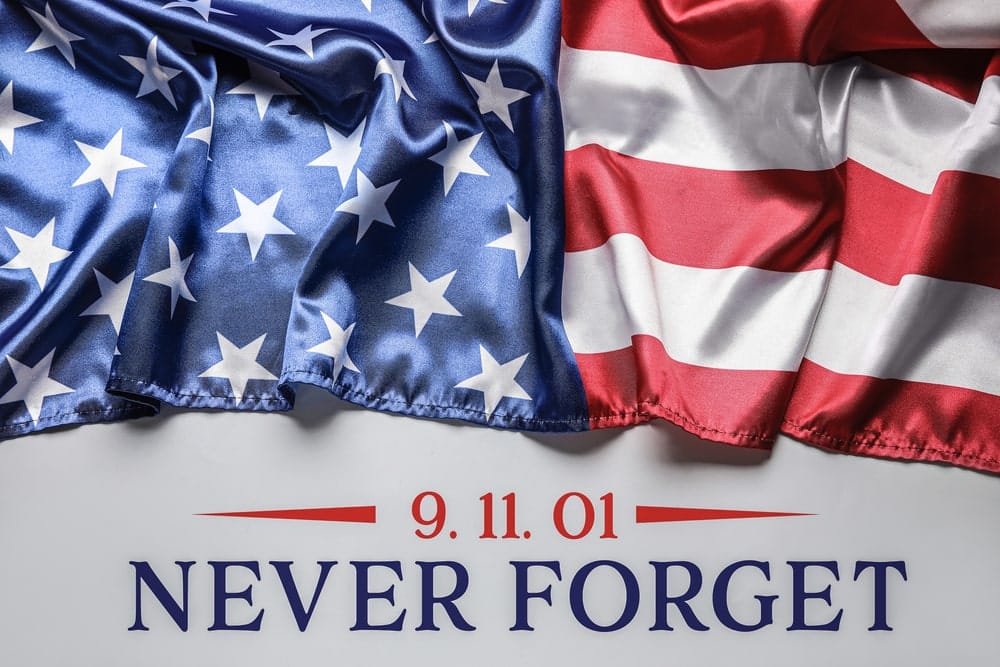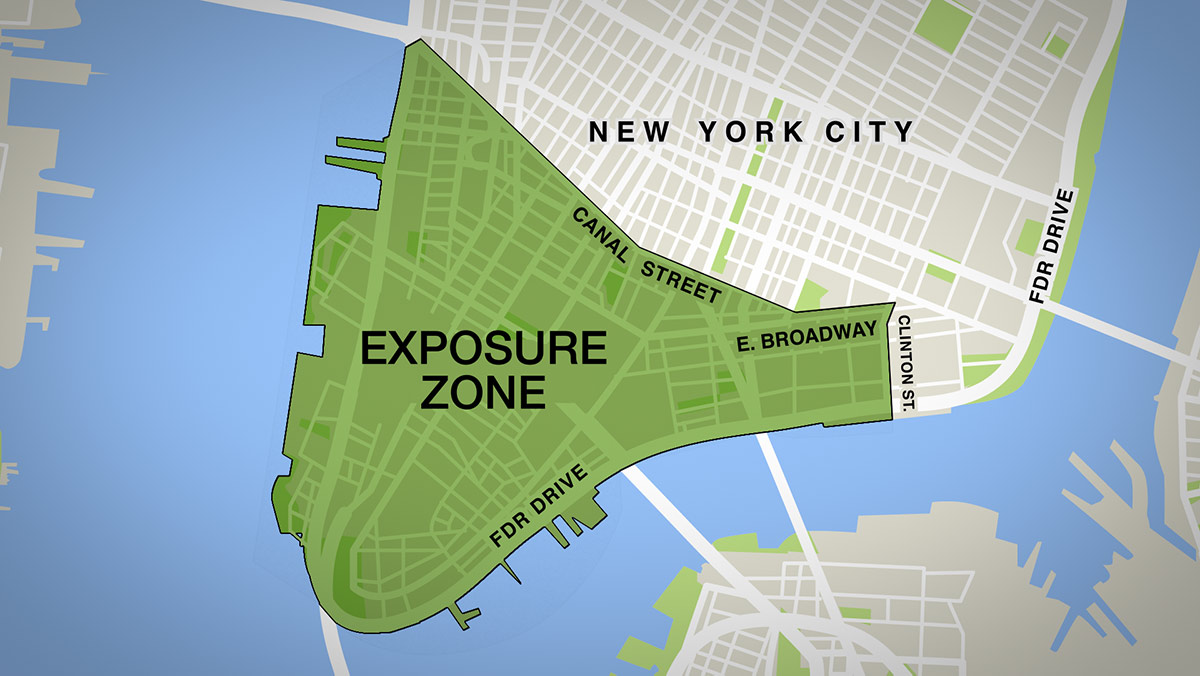
One silver lining to emerge from the 9/11 attacks has been the comprehensive aid available to anyone whose health was negatively impacted in the aftermath. This was fought hard for in the years following the fall of the Twin Towers.
The two most prominent programs for responders and survivors of the attacks are the World Trade Center Health Program (WTCHP) and the September 11th Victim Compensation Fund (VCF).
These programs serve different purposes though they are closely linked—and most people whose health was adversely affected by 9/11 are eligible for both.
It is important to understand that the programs are run by separate staff and have different goals, eligibility requirements, and registration systems.
Let’s take a closer look at each program to highlight the main differences between them…
What is the World Trade Center Health Program?
The World Trade Center Health Program is a federally funded, nationwide program designed to provide medical monitoring and treatment for those who suffered either physical or mental health conditions as a result of the 9/11 attacks.
It is open to emergency responders, recovery and cleanup workers, and volunteers who were in the New York City disaster area during and immediately following the 9/11 attacks, as well as at the Pentagon and the crash site near Shanksville, Pennsylvania.
The program is also available for residents, students, and workers who were exposed to the toxic dust in the exposure zone in downtown Manhattan in the months after the attacks.
The program is administered by the Centers for Disease Control (CDC) and the National Institute of Occupational Safety and Health (NIOSH).
Eligible individuals can register with the WTCHP even if no adverse symptoms or health issues are apparent. They will then have the necessary registration and documentation to receive medical care and claim compensation (from the VCF) if they develop a health condition in the future.
WTC Health Program clinic locations are dotted throughout the NYC Tri-State area and around the country, making it convenient for individuals to get the diagnoses and care they need.
What conditions are covered by the 9/11 WTC Health Program?
The WTCHP covers a wide spectrum of health issues from cancer and breathing disorders to digestive issues, traumatic injuries, and mental health conditions.
It is worth noting that more conditions are covered by this program than by the VCF. This means that some individuals may be eligible to receive monitoring and treatment for a 9/11-related health condition but not necessarily receive compensation (more about this below).
All forms of cancer are covered by the WTCHP. All major respiratory conditions, such as asthma, COPD, chronic bronchitis, and interstitial lung disease are also covered. Aerodigestive conditions, which affect the respiratory or digestive systems such as chronic sinusitis, rhinitis, and laryngitis also receive coverage under the WTCHP.
Some musculoskeletal disorders and many acute traumatic injuries, such as burns, sprains, eye injuries, fractures, and head trauma are also covered.
The types of mental health conditions covered include acute stress disorder, anxiety disorders, depression, post-traumatic stress disorder (PTSD), and substance use disorder.
What is the Victim Compensation Fund?
Whereas the WTCHP provides medical monitoring and treatment for health conditions caused by 9/11-related illness or injury, the VCF provides compensation for health conditions or the death of a family member due to WTC-related conditions / injuries.
The fund is operated by the U.S. Department of Justice and, unlike the WTCHP, only covers physical health conditions related to 9/11—not mental conditions.
If an individual files a claim with the VCF, the administrators of the fund will inquire with the WTC Health Program about the condition. If the condition is confirmed as 9/11-related, the VCF will award compensation based on past and future losses.
To obtain compensation through the VCF, claimants must meet one of the following requirements:
- Their condition must be certified by the WTCHP as 9/11-related; or
- Their condition appears on the WTCHP’s list of covered conditions, and they can prove it is 9/11-related by diagnosis from an approved private physician if the claimant is unable to access medical treatment and monitoring services through the WTCHP.
Claimants must also meet the other requirements of the VCF, which are outlined in the Federal Regulations and Policies and Procedures. For instance, they will need to establish proof of presence in the 9/11 exposure zone (or at one of the other crash sites) and complete a detailed claim form.
What is covered by the 9/11 VCF?
The main health conditions covered by the VCF are similar to those covered by the WTCHP, except the mental health conditions. They include the following:
- Cancers, including those involving the blood and lymphatic system, breast, digestive system, eye and orbit, ovary, prostate, respiratory system, skin, thyroid, and urinary system.
- Aerodigestive disorders, such as asthma, chronic cough syndrome, chronic rhinosinusitis, gastroesophageal reflux disorder (GERD), chronic obstructive pulmonary disease (COPD), and sleep apnea.
- Mesothelioma, childhood cancers, and certain rare cancers.
- Acute traumatic injuries.
Compensation amounts for the pain and suffering caused by claimants’ conditions range from $90,000 for a non-cancer condition up to $250,000 for cancer.
Can you qualify for the WTC Health Program but not the Victim Compensation Fund?
The majority of people who suffered adverse health effects after the 9/11 attacks would be well advised to register for both the WTCHP and the VCF.
Even those who have been fortunate enough so far to escape any adverse effects from the exposure to the toxic dust in and around Ground Zero should register for the WTCHP as soon as possible.
Responders and survivors of the 9/11 attacks may be eligible for the WTC Health Program but not the VCF if any of the following applies to their situation:
- They are suffering from a mental health condition, such as depression or PTSD as a result of the 9/11 attacks.
- During or immediately after the attacks, they were living, working or studying in the Brooklyn area, which is covered by the WTCHP but not the VCF (the exposure zone for the VCF includes all of lower Manhattan south of Canal Street only).
Overall, the eligibility requirements for the WTCHP are more relaxed than those for the VCF. Everyone who volunteered or was living, working or studying in lower Manhattan south of Houston Street (including Brooklyn Heights) should register for the WTC Health Program.
Note that both programs will now run until October 1, 2090, ensuring that almost all survivors, including young babies, will be covered for the entirety of their lives.
To discuss your situation and learn more about how we may be able to help you, please call Weisfuse & Weisfuse, LLP at 332-239-2238 or contact us online to schedule a free consultation.






